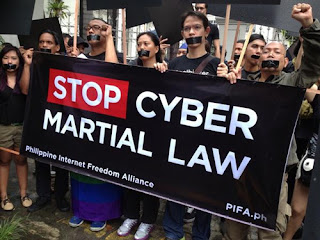In another sign of the Philippines' improving prospects, the Asian Development Bank raised its forecast of 2012 GDP growth from 4.8 per cent to 5.5 per cent, according to the lender's updated Asian Development Outlook 2012 released on Wednesday.
The Philippines was one of a handful of countries that escaped the ADB's sharp scaling down of forecasts for the region, which is now seen growing by 6.1 per cent this year instead of the 6.9 per cent in the bank's original projections released in April.
The ADB said it raised its forecast for the Philippines after the economy grew by a better than expected 6.1 per cent in the first half of the year. The government itself expects growth to reach 5 to 6 per cent this year from 3.9 per cent last year.
Apart from higher growth, the ADB is also predicting slightly lower inflation and an improved current account balance in 2012. It sees consumer price inflation at 3.4 per cent, down from its original forecast of 3.7 per cent. The current account balance is seen rising to 2.6 per cent of GDP, up from the original forecast of 2.1 per cent.
This leaves the central bank, which has recently cut rates to record lows, with more room to ease monetary policy and sustain growth momentum amid tougher global economic conditions. The ADB said:
There is room for further policy support for economic growth if required. Modest inflation (well within the central bank's 3.0-5.0% target range), a strong external position, and an appreciating currency suggest that monetary policy can stay accommodative, at least in the near term. Fiscal outlays fell $2 billion short of the budgeted amount in the first half of the year, despite the boost in government spending.
But the bigger challenge facing Philippine policy makers is making sure the benefits of economic expansion are enjoyed by everybody. Despite faster GDP growth, joblessness remained high at 7 per cent in the first half of the year, while under-employment rose to a six-year high of 22.7 per cent.
It's not going to be easy. The government must make progress removing stumbling blocks that have hampered agriculture and industry, the main sources of jobs.
Benjamin Diokno, an economist and former budget secretary, wrote a newspaper column outlining what needs to be done to make growth more inclusive:
Agriculture, which employs about one-third of the country's labor force, has to find new life. A big part of the sector's growth is retarded by the uncertainty brought about by agrarian reform. Injecting new life in the industrial sector, the source of many productive, decent jobs, requires better infrastructure, specifically better roads so that goods can be transported from one point to another at less cost.
Philippine Peso Little Changed as Europe Damps Investor Appetite
The Philippine peso was little changed, after gaining the most in more than two weeks yesterday, on concern a prolonged slowdown in Europe will damp demand for emerging-market assets. Government bonds fell.
Euro-area retail sales contracted for a 12th straight month in August from a year earlier, data showed today. The European Central Bank meets tomorrow, when officials are expected to leave borrowing costs unchanged at a record-low 0.75 percent, according to a Bloomberg survey. The peso climbed yesterday after a surprise jump in U.S. manufacturing boosted the Asian nation's export outlook, while the Asian Development Bank upgraded the nation's growth forecast today.
"The good U.S. data has been neutralized by concern over Europe," said Jonathan Ravelas, chief market strategist in Manila at BDO Unibank Inc. "Investors still have this guarded optimism on the Philippines."
The peso closed at 41.600 per dollar compared with 41.605 yesterday in Manila, according to Tullett Prebon Plc. It dropped as much as 0.2 percent earlier. The currency touched 41.590 on Oct. 2, the strongest level since Sept. 20. One-month implied volatility, a measure of exchange-rate swings used to price options, was unchanged at 5.3 percent.
The Asian Development Bank lifted its 2012 economic growth forecast for the Philippines to 5.5 percent from 4.8 percent. The peso has strengthened 5.4 percent this year, the best performance in Asia.
Consumer prices rose 3.8 percent in September from a year earlier, the same as in August that was the fastest since January, according to the median estimate of economists in a Bloomberg News survey before a report due Oct. 5.
The yield on the 4.75 percent notes due September 2022 increased three basis points to 4.75 percent, according to prices from Tradition Financial Services.
Financial Times, Bloomberg Business Week












